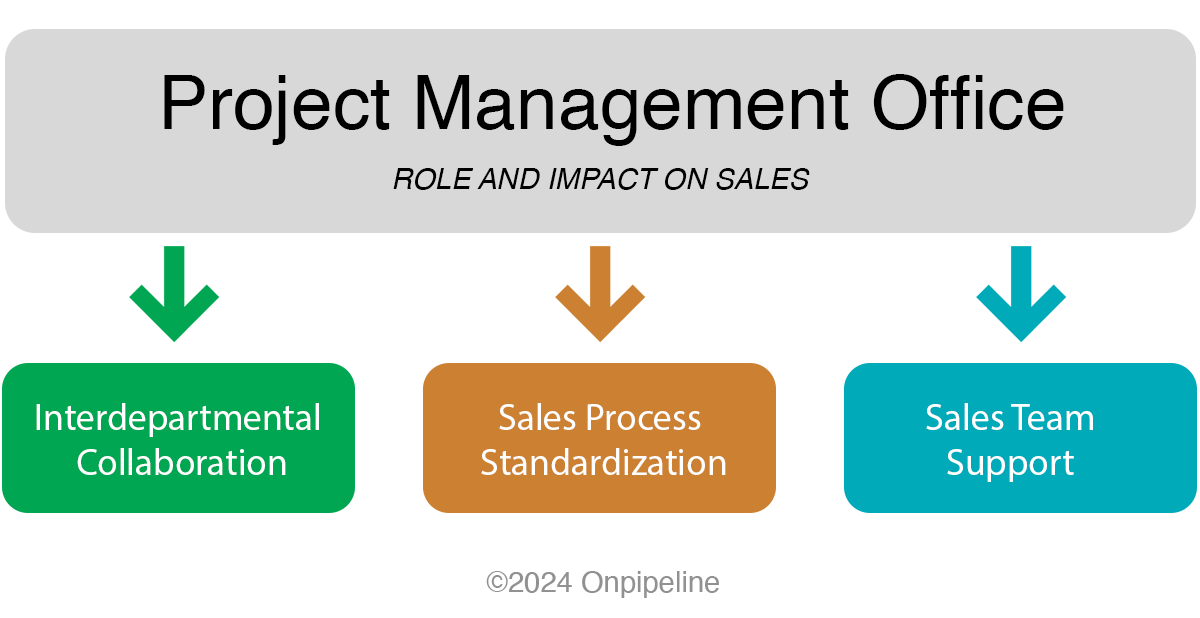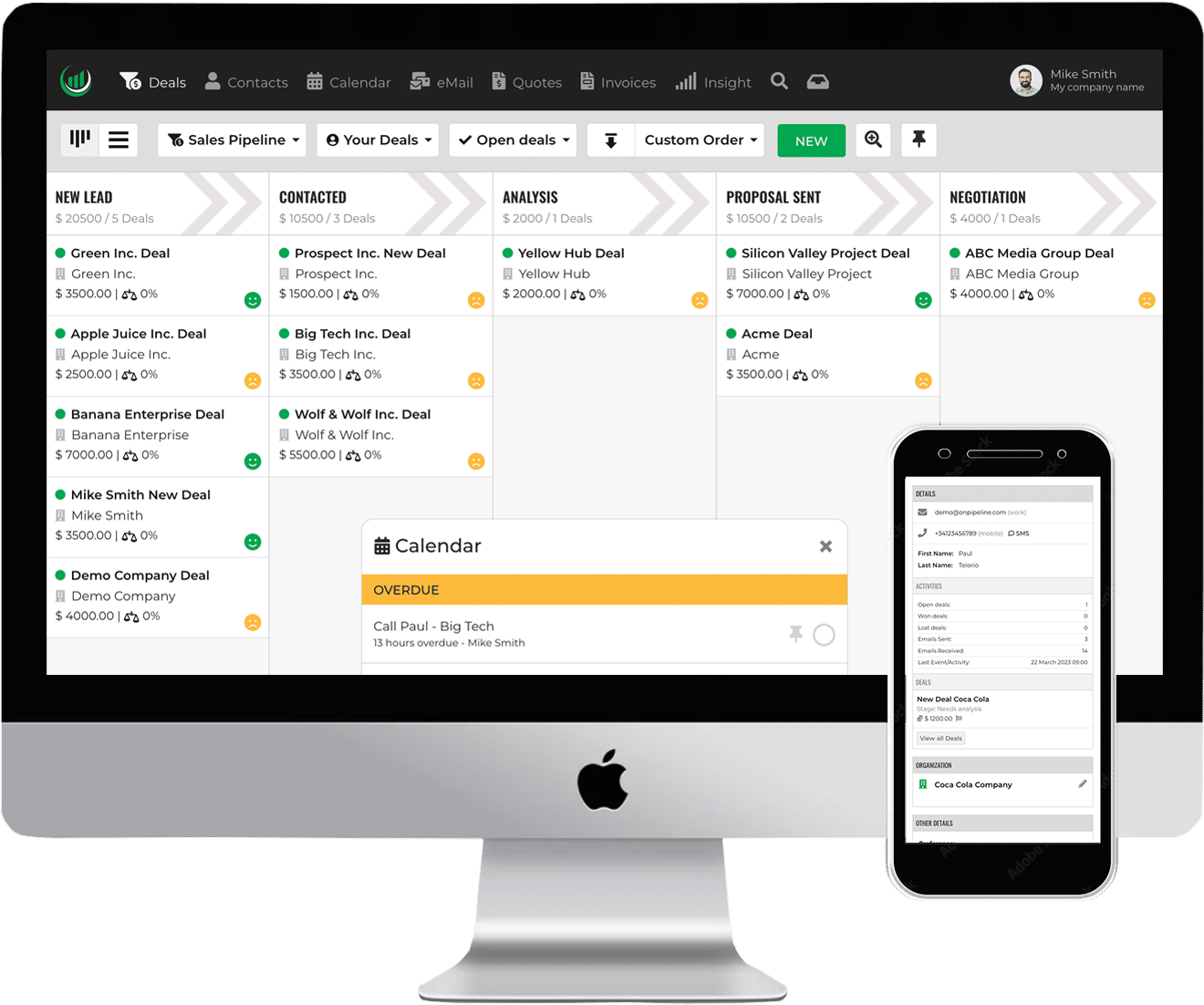Understanding the Role of a PMO – A Project Management Office serves as the backbone of organized and efficient project execution within an organization. While its traditional association might be with projects, the role of a PMO extends its influence to various facets of an organization, including sales.
A well-structured PMO acts as a guiding force that optimizes processes, fosters alignment, and enhances collaboration, all of which play a pivotal role in boosting sales efforts.
PMO vs Project Manager
Think of a team preparing for a race. The project manager is like the team captain, leading everyone, deciding the plan, and making sure everyone is ready. The PMO is like the coach, helping the captain by giving advice, providing tools, and making sure everyone follows the rules. Together, they help the team work well and win the race – or finish the project successfully!
Sales Process Standardization
One of the primary functions of a PMO in the realm of sales is to standardize and align the sales process. It takes the diverse steps of the sales journey, from lead generation to conversion, and transforms them into a coherent and replicable framework.
By establishing standardized processes, a PMO ensures that the entire sales team is on the same page, follows best practices, and delivers a consistent experience to customers. This standardization not only enhances efficiency but also builds a foundation for continuous improvement.
Interdepartmental Collaboration
In the context of sales, collaboration between various departments, such as marketing, finance, and customer support, is essential.
A PMO fosters interdepartmental collaboration by acting as a bridge that aligns sales activities with the overarching goals of the organization. It facilitates communication, breaks down silos, and ensures that information flows seamlessly across departments.
This collaborative environment enhances cross-functional understanding, leading to better-informed decisions and coordinated efforts that contribute to sales growth.
Making Sales Smoother with a PMO
A Project Management Office (PMO) might sound fancy, but its role is simple: to make sure your sales efforts work smoothly with your big goals. It’s not just for projects; it’s a game-changer for sales too, helping everything come together.
The Ways a Sales-Friendly PMO Helps
Imagine having a clear path for your sales journey from start to finish. A PMO makes that happen by setting up steps for your team to follow, making sure everyone is on the same page.
Supporting Your Sales Team
Think of a PMO as a helper for your sales team. It makes sure the right people do the right things, and provides helpful tips and tools to make sales even better.
Keeping Sales on Track
Sales can be tricky, but a PMO helps identify potential problems and comes up with solutions. This keeps your sales efforts going strong, no matter what surprises come your way.
Different Ways PMOs Help Sales
Just like you can have different tools for different jobs, PMOs come in types that fit what you need for sales:
Guiding Sales PMO: Gives your sales team tips and ideas to help them shine.
Keeping an Eye PMO: Watches over your sales plan and makes sure everything is working as it should.
Leading the Way PMO: Sets the direction for your sales efforts and helps make important choices.
Why a Sales-Boosting PMO Matters
A PMO that’s all about sales can make a big difference. It helps you stay organized, predicts sales trends, and brings everyone together to work better. That means more successful sales and a happier team.
PMO – Your Sales Superhero
When it comes to sales, a PMO is like your secret weapon. It brings order, helps you tackle challenges, and keeps your sales team on the right track. Remember, it’s not just about selling things; it’s about making sales work like magic with the help of a PMO.
The Power of CRMs in PMOs
Imagine having a tool that not only tracks your customers but also guides your project management. That tool is a Customer Relationship Management (CRM), and it’s changing the game for Project Management Offices.
CRMs used to be mainly for sales, but now they’re a big deal for PMOs too. These systems gather a lot of information about customers – what they like, how they behave, and more. When PMOs use CRMs, they get a full picture of what customers want.
Smartly Using Resources
Sometimes it’s tricky to figure out who should do what in a project. CRMs can help with that too. They keep track of how team members work and when they’re available. This helps PMOs put the right people on the right tasks at the right time. It’s like a puzzle falling into place – no delays, no problems.
Predicting and Avoiding Problems
CRMs also help PMOs look into the future. Based on past projects, they can guess what might happen in new projects. If there’s a chance of something going wrong, CRMs can warn PMOs ahead of time. This lets PMOs fix things before they become big problems.
PMO Examples
Example 1 – Retail Company
A retail company wanted to improve how it sold products. They used a PMO to create better sales strategies. The PMO team worked with different departments to make sure everyone was on the same page. They analyzed sales data to figure out what products were popular and when to offer discounts. This helped the company sell more and make customers happier.
Example 2 – Car Manufacturer
A car manufacturer needed to launch new models and attract customers. They set up a PMO to plan their sales campaigns. The PMO team coordinated with marketing, design, and sales departments. They made sure all the pieces of the campaign fit together, like when to announce new cars and how to reach potential buyers. This helped the manufacturer sell more cars and stay competitive.
Example 3 – Tech Company
A tech company wanted to build better relationships with its clients. They used a PMO to make sure every interaction with clients went well. The PMO team trained salespeople, tracked client feedback, and improved communication. This helped the company understand what clients needed and provide better solutions. As a result, they gained more loyal clients and grew their business.



